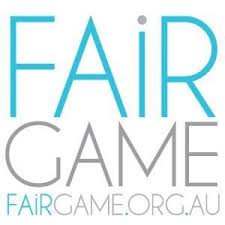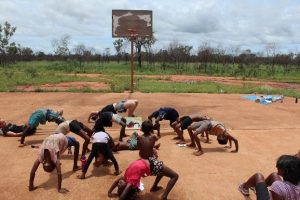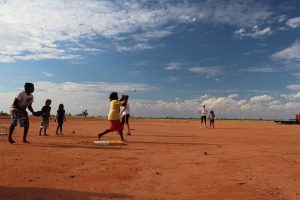The challenge
Fair Game is a young not-for-profit which delivers fitness, health education and recycled sports equipment in disadvantaged communities. Its objectives are to:
- reduce the burden of lifestyle-related diseases,
- build social cohesion and
- improve mental wellbeing.
Measuring the outcomes of services delivered in remote communities is often “too hard”. The literature identified few organisations had successfully measured outcomes on such a broad front. How could the organisation demonstrate that it is having an impact?
The brief was to develop a program evaluation framework that was meaningful, measurable and manageable.
Our approach
Our first step was to conduct a series of interviews with Fair Game’s executive team to better understand the organisation’s processes. We undertook in-depth interviews with key stakeholders including program recipients, funders, members of the Fair Game team and community representatives. Stakeholders provided an understanding of their experiences and expectations of Fair Game’s processes. Partner and peer organisations contributed to the process by sharing their experiences of program evaluation. The qualitative process gathered suggestions for output measures that indicated progress toward the intended short, medium and long-term outcomes.
Workshops with Fair Game volunteers were integral to the process, identifying what was and wasn’t practical to measure.

The outcome
Research Solutions provided Fair Game with
- program logics for its two main programs
- output and outcome measures for each
- survey instrumentation reflecting literacy and language barriers
- a proposed implementation plan, and
- a measurement framework currently being piloted by Fair Game teams.
Fair Game and Research Solutions have committed to reviewing the framework post pilot.
 “Measuring the impact of our work across regional WA has always been a challenge. Research Solutions’s approach to developing an Outcomes Based Measurement Framework was comprehensive and provided great insights from volunteers, stakeholders, beneficiaries and funders. The final report provided much more than just the framework and went beyond our expectations.”
“Measuring the impact of our work across regional WA has always been a challenge. Research Solutions’s approach to developing an Outcomes Based Measurement Framework was comprehensive and provided great insights from volunteers, stakeholders, beneficiaries and funders. The final report provided much more than just the framework and went beyond our expectations.”
Nicki Bardwell, CEO, Fair Game



